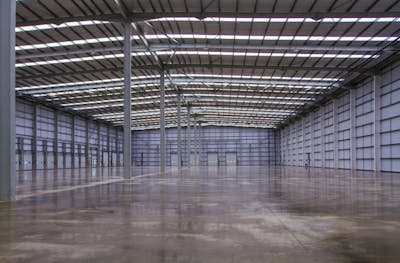Find the Best Core Drilling Experts Near You!
- Post a job
- Receive multiple quotes
- Choose your preferred Core Drilling service provider
Where do you need Core Drilling?
Describe your job and our suppliers will send you quotes
Expert Core Drilling Contractors on iseekplant
iseekplant connects you with top-rated concrete core drilling providers across Australia, ensuring access to expert services for all your drilling needs. Whether you're undertaking construction, mineral exploration, or infrastructure projects, our network of professionals offers precision and reliability. From small-scale residential jobs to large industrial undertakings, these services utilise specifically designed equipment, including advanced core drilling machines, to deliver high-quality results. Explore our comprehensive list of core drilling services and find the perfect match for your project requirements.
Core Drilling Rates Guide
Core Drilling rates can vary based on the depth and diameter of the holes drilled, as well as the material being drilled into. From hard rock to large holes, these components of core drilling and concrete coring can affect the total price of the service. Many professional providers utilise heavy duty diamond drilling tools for precision and efficiency, along with features like overload protection to ensure safe and consistent operation. Below is a table showing average prices for core drilling services to help you get a clear idea of potential costs.
Core Drilling Rates by Diameter Range
| Diameter Range (mm) | Rate per 10mm Depth |
|---|---|
| 25 - 50 | $1.80 - $1.90 |
| 51 - 100 | $2.00 - $2.60 |
| 101 - 150 | $3.30 - $3.80 |
| 151 - 200 | $4.50 - $5.70 |
| 201 - 300 | $6.60 - $9.10 |
| 301 - 400 | $11.40 - $14.50 |
| 401 - 500 | $18.10 - $21.60 |
| 501 - 700 | $25.10 - $33.90 |
| 701 - 800 | $38.70+ |
Additional Charges
| Service Type | Cost |
|---|---|
| Relocation Fee | $40 per hole |
| Horizontal Drilling Surcharge | $25 per hole |
| Inverted Drilling Surcharge | Charged Hourly |
| Excessive Steel Drilling | +$3.50 per 10mm |
| Travel & Setup Fee | $170 |
| Minimum Service Charge | $390 |
| Sandstone Drilling | +$3.50 per 10mm |
| High-Frequency Drilling | Additional 20% |
| Wet Vac / Slurry Bin | $110 per Bin |
Note: These rates are indicative and may vary based on the supplier and location within Australia. All prices exclude GST and are in AUD.
Other Types of Drilling & Concrete Services on iseekplant
iseekplant offers a diverse range of drilling and concrete services tailored to meet various construction and engineering needs. From precision drilling to comprehensive concrete solutions, these services ensure efficient project execution and high-quality outcomes. Below is a table detailing the available services and their descriptions.
| Service | Description |
|---|---|
| Anchor Drilling | Specialised drilling for installing anchors in rock or soil to support structures and foundations using advanced tool applications. |
| Concrete Drilling | Precision drilling in concrete structures for installing utilities, anchors, and other purposes, often requiring a durable shaft for stability. |
| Directional Drilling | Technique used for drilling non-vertical bores, often used in utility installations and pipelines. |
| Drilling Contractors | Professional services providing a range of drilling operations, including exploratory and construction drilling. |
| Drilling and Blasting | Combined services for drilling boreholes and using controlled explosives to break masonry for mining and construction. |
| Earth Stake Drilling | Drilling operations for installing earth stakes, commonly used in grounding electrical systems. |
| Environmental Drilling | Drilling to collect soil and water samples for environmental assessments and monitoring. |
| Geotechnical Drilling | Drilling for assessing soil and rock properties, essential for foundation design and construction planning. |
| Water Bore Drilling | Drilling boreholes to access underground water sources for agricultural, industrial, and residential use. |
| Concrete Cutting | Cutting concrete structures with precision tool applications for modifications, repairs, or installation of utilities. |
| Concrete Footpaths | Construction and repair of concrete footpaths, ensuring durability and safety in pedestrian areas. |
| Concrete Formwork | Creating molds to hold wet concrete in place until it sets, essential for building structures. |
| Concrete Grinding | Smoothing and leveling concrete surfaces to prepare for finishing or to remove surface imperfections. |
| Concrete Recycling | Crushing and reprocessing concrete for reuse in construction projects, promoting sustainability. |
| Concrete Repair | Services to fix damaged concrete structures, restoring their integrity and extending their lifespan. |
| Concrete Sawing | Cutting concrete with saws for creating openings, expansion joints, or demolition purposes. |
| Concrete Sleeper Walls | Building retaining walls using concrete sleepers, known for their durability and aesthetic appeal. |
| Concreters | Professionals specialized in pouring, leveling, and finishing concrete for various construction projects. |
| Driveway Concreters | Specialized concreters focused on designing, pouring, and finishing concrete driveways. |
Find High-Quality Core Drilling Solutions on iseekplant
On iseekplant, you have access to a broad network of experienced core drilling providers complete with core drilling equipment across Australia, ensuring your project site is supported by precision and careful execution. Experience the iseekplant advantage when sourcing core drilling services by contacting us now. Your projects deserve the expertise and meticulous attention to detail that our specialists bring to the table. For any queries, send us an email at projects@iseekplant.com.au or call us at 1300 691 912. Eager to begin? Just click on 'Get a Quote'!
Popular Core Drilling Locations
Become a supplier
How It Works
Core Drilling FAQs
Here are some tips & frequently asked questions on how to find the right core driller for your job.
What do we have to offer?
Want to Know More?

Polished Concrete Cost Guide | Find the best rates on iseekplant
Polished concrete floors are a clean and modern finish for any interior ...
